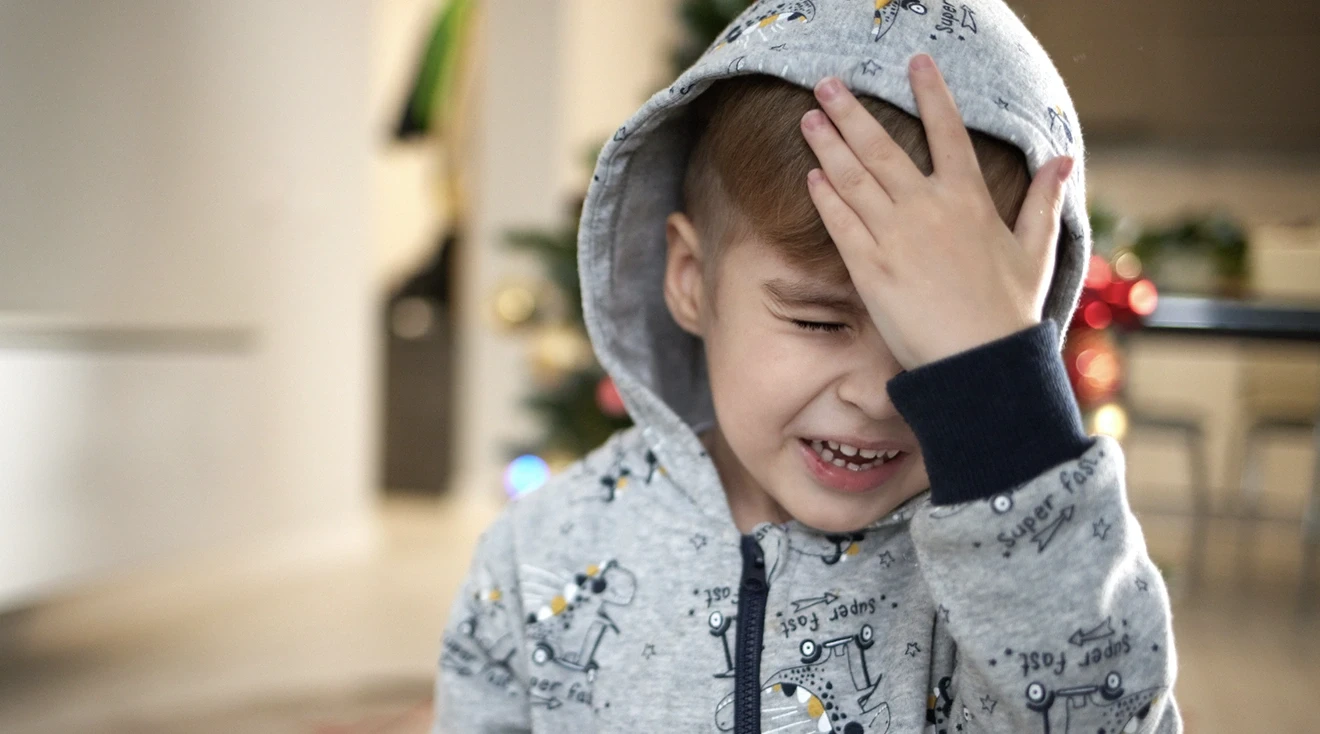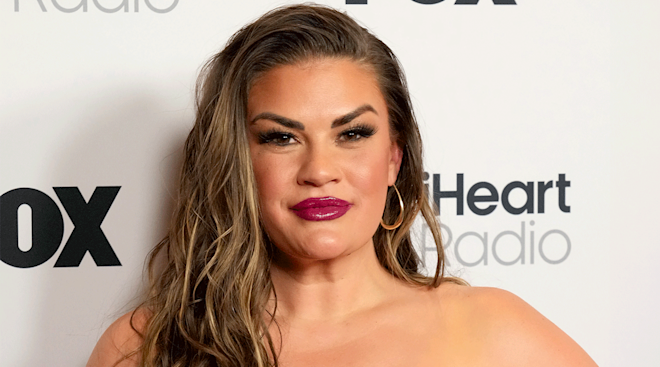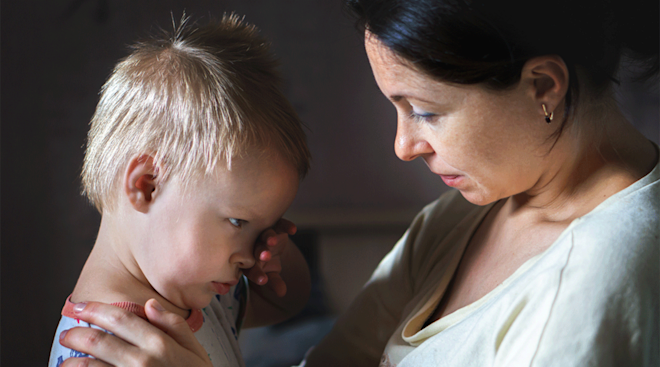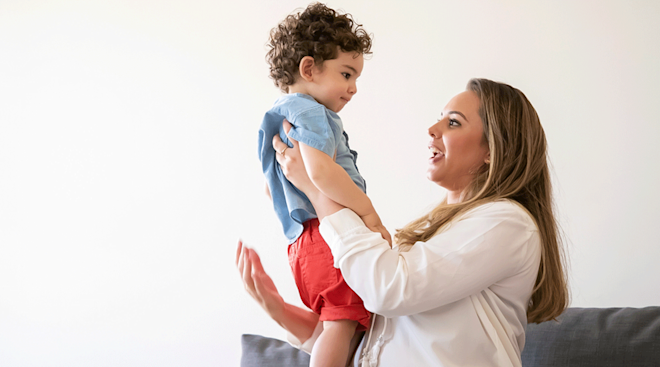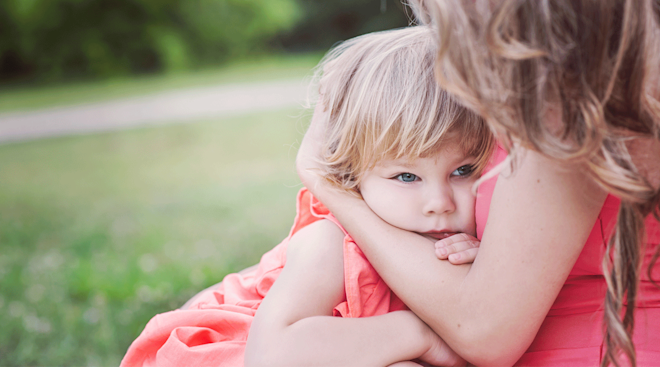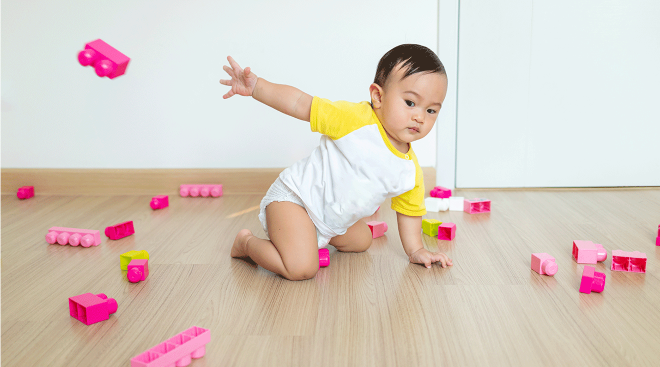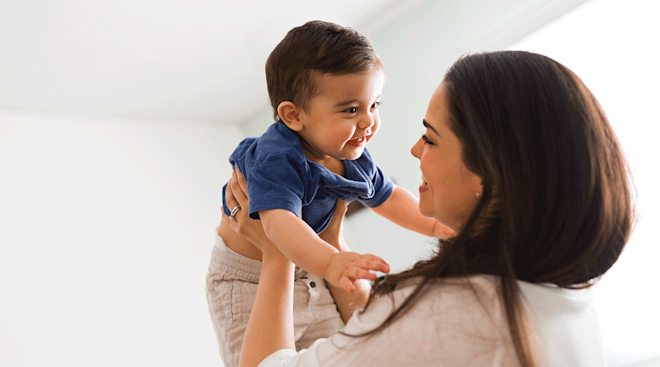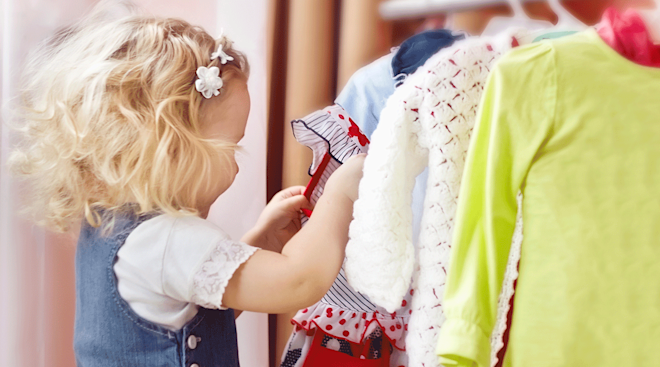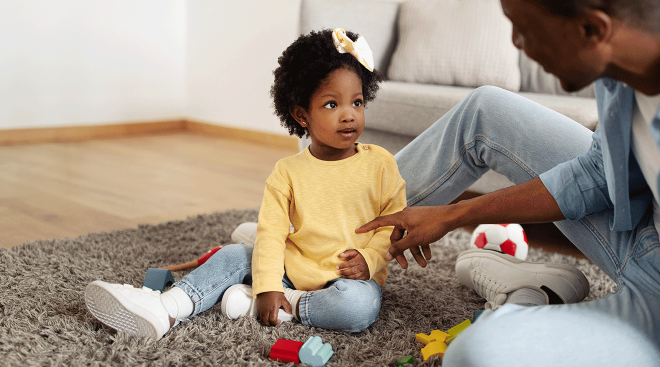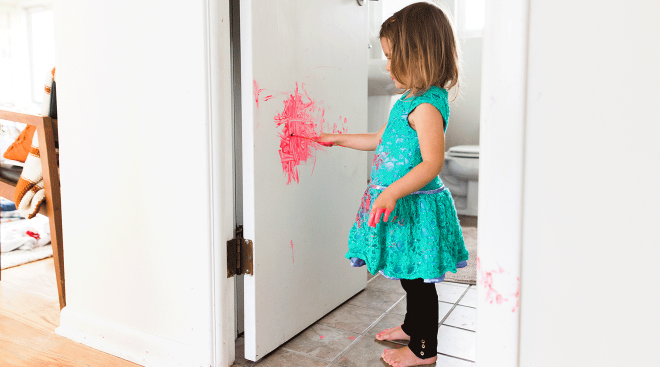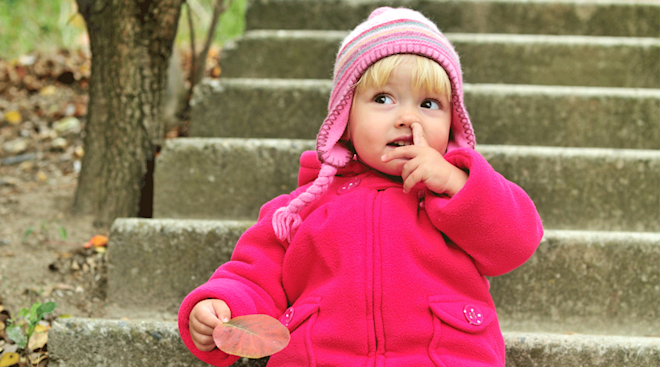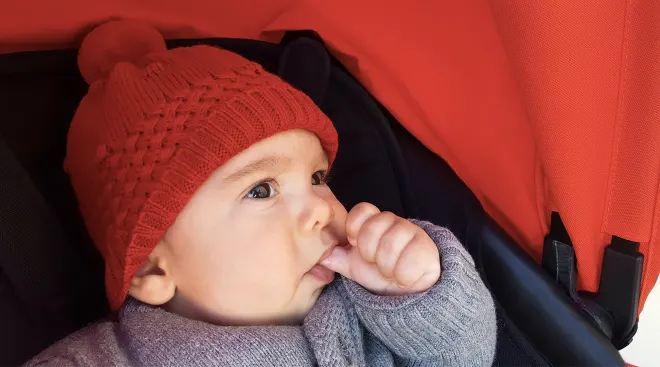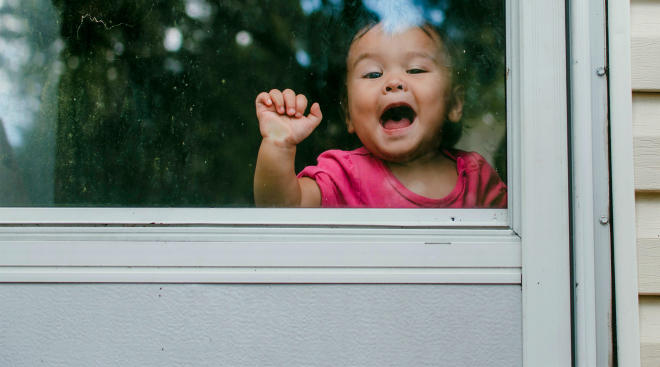Is Head Banging in Babies and Toddlers Normal?
Tantrums are a natural part of toddlerhood—your little one is growing and changing so quickly, it can be hard for them to cope with all the big feelings that come with the territory. But during a tantrum, you may notice your toddler exhibiting some strange behaviors. One of the most difficult to watch is head banging. This occurs when a child willfully hits their head, often repeatedly. Head banging can be challenging to wrap your mind around—but, as a child development expert, I encourage caregivers to look “beyond the behavior” to understand their toddler’s motivation. Here’s what to know about baby and toddler head banging, including how to respond and when to loop in your pediatrician.
Head banding in children is exactly what it sounds like: It’s when they repeatedly hit their head against something, and it can present differently in each child. You may find baby hitting their head on their crib or another hard surface like the floor or wall. They may even hit themselves on the head with their hand or an object. Head banging often occurs as part of a tantrum, and can be accompanied by big emotions. It’s also often a mechanism babies and toddlers use to self-soothe or wind themselves down before falling asleep.
Watching your little one bang their head against a wall or even their hand can be really upsetting and tough. And, naturally, you might worry that this behavior will cause physical bruises or neurological damage. Parents may also wonder if head banging is a sign that their child will grow up to be aggressive, depressed or otherwise impaired. The good news is that, in most cases, head banging is normal in children.
According to a 2022 study, a typical temper tantrum can result in screaming, crying, kicking, pushing, hitting, head banging and other behaviors. The study found that 42 percent of the toddlers and preschoolers they examined exhibited head banging.
While it may be normal, it can still feel upsetting; fortunately, there are some ways you can minimize this upsetting behavior. Keep reading for some things to look out for and signs that might indicate the need for further assessment.
Most toddlers bang their heads during tantrums, which are a normal part of childhood development. Tantrums occur because kids’ brains are dysregulated—they don’t yet know how to cope with big emotions. When a child has a tantrum, there’s often an underlying need they want to communicate. It can be easy for adults to view tantrums as negative behavior, especially when they’re accompanied by aggressive actions, such as head banging, but understand that it’s usually a form of communication, not a choice to be naughty.
More scientifically, when a person is in their feelings, the emotion-center of the brain (the amygdala) asks the thinking part of the brain (the frontal lobe) how it should cope. The problem is that the frontal lobe often goes “offline” when we have intense emotions, causing the brain to go into fight-or-flight mode. To this end, when children feel stressed or dysregulated, they act in ways that don’t make logical sense, hence the head banging.
Some babies and toddlers also bang their heads when they experience pain, such as from an ear infection. Moreover, they may do it simply to relax if they find the repetitive, rhythmic movement to be soothing.
Remember that when your child bangs or hits their head, they’re likely dysregulated, which means you have to do the thinking for them. Usually, the tantrum will need to run its course, but there are some ways you can respond that may shorten the duration or intensity of the tantrum.
-
Ensure your child is safe: Make sure your child is in a safe location. Many kids throw themselves onto the ground in the middle of a walkway or public place, and most people will give them leeway, but do make sure they’re not somewhere they’ll be trampled or hurt.
-
Don’t call attention to the head banging: If your child is banging their head, you might be tempted to block them to keep them from actually hitting the hard surface. Try your best to do so without calling too much attention to the behavior, as that may increase your child’s frustration, causing them to intensify their self-harm.
-
Empathize with your child: In doing so, try to address their needs. Are you able to comply with the request that sent them into this tantrum? If not, you can empathize with them; this often makes them feel heard enough to calm down. Say, “I see you’re very upset that we can’t stay and play. That’s disappointing and not fun!” Don’t offer suggestions yet, but let your child settle a bit. Only when they’re reasonably calm will they be able to take your suggestion without escalating again.
-
Try changing the location: This can be challenging if your child is mid-tantrum, but they may need to leave a loud restaurant or a busy grocery store. Get them to a location where they can come down from the tantrum.
Most children outgrow head banging at some point around age 3. Usually, kids know their own tolerance for pain and will stop before seriously injuring themselves. Try to be consistent in helping them regulate in a less harmful way, such as with mindfulness and meditation tools. These can be taught through books, play-based learning and apps.
Headbanging can become a problem if your child is doing it very often, or if they’re causing themselves injury. Sometimes headbanging can be a sign of autism or another developmental issue. If your toddler is banging their head in moments other than during tantrums, seems delayed in their developmental milestones or exhibits other repetitive behaviors, speak to your doctor, as they may want to further evaluate.
Head banging in toddlers can be upsetting for any parent or caregiver, but take heart knowing that soon enough your little one will develop the tools to cope with their big feelings, and use their words to communicate more effectively. In the meantime, there’s a lot you can do to help them get there.
About the author:
Cindy Hovington, PhD, is the founder of Curious Neuron, a science-backed parenting consultancy that aims to make the science around childhood development more accessible and digestible for parents. She’s also the host of the Curious Neuron podcast and recently became the co-founder of Wondergrade, an app that helps kids 3-8 learn how to cope with emotions. She obtained her master’s degree from Queen’s University and doctorate in neuroscience from McGill University in Canada.
Please note: The Bump and the materials and information it contains are not intended to, and do not constitute, medical or other health advice or diagnosis and should not be used as such. You should always consult with a qualified physician or health professional about your specific circumstances.
Navigate forward to interact with the calendar and select a date. Press the question mark key to get the keyboard shortcuts for changing dates.
































